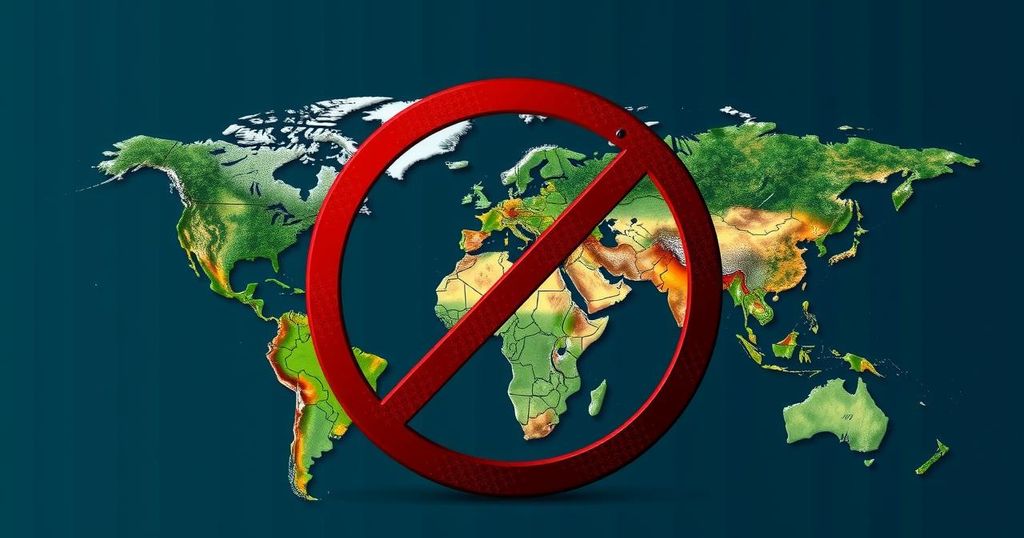During COP29, affluent nations committed to contribute only $300 billion annually by 2035 towards climate adaptation for poorer countries, while economists estimate a need of $1.3 trillion. This shortfall presents significant challenges for the global climate crisis, highlighting a troublesome disparity between promised aid and actual resources necessary for climate resilience and emissions reduction.
The climate crisis is largely attributed to wealthy industrialized nations, yet these countries are reluctant to fulfill their financial obligations towards the affected poorer nations. During the recent COP29 conference, the expectation was that developed nations would begin to accept their responsibilities, but their failure to contribute significantly hampers the ability of developing countries to adapt to severe weather conditions or invest in the clean energy necessary to mitigate emissions effectively.
Despite their historical role in creating the climate catastrophe, wealthy nations agreed to provide only a fraction of the financial aid required. They pledged to transfer $300 billion annually to poorer nations by 2035, while economists assert that the actual need stands at $1.3 trillion. This blanket commitment falls drastically short, leaving poorer nations struggling to cope with the ongoing climate-related challenges, which not only affect current resilience but threaten future capabilities as well. Moreover, the came with conditions that would further deepen the debt crises in these nations, particularly as private sector funding and proposed taxes remain largely theoretical.
COP President Mukhtar Babayev of Azerbaijan underscored the failure of the agreement, acknowledging that it fell “far short of the $1 trillion widely and scientifically agreed to be the minimum needed to avert catastrophic human-made climate change.” Interestingly, he pointed fingers at resistant Western governments while recognizing the efforts of more proactive nations such as the United Kingdom.
The interim financial provisions reveal a stark contrast to the estimated needs of developing countries. When analyzed, the proposed $300 billion distributed among 45 vulnerable nations results in less than $7 billion per nation annually, competing against the high costs of individual disasters. As expressed by Mohamed Adow, director of Power Shift Africa, this outcome can only be viewed as a significant betrayal by wealthy nations that profess commitment towards climate change action.
Compounding the issue, the pledged amount disregards the considerations of inflation, thereby diminishing its effective value each year. Economists, including Nicholas Stern, emphasize that delayed action leads to exponentially greater expenses in the future. They argue that climate finance should be perceived as an investment with tangible economic returns rather than as an act of charity, further illustrating the necessity for rich nations to pivot away from fossil fuel subsidies, which totaled $620 billion globally in 2023, overshadowing their commitments to developing countries.
Moving forward, Brazil is set to host COP30, where new opportunities may arise. Brazilian Minister of Environment and Climate Change, Marina Silva, described the recent summit’s outcomes as intolerable, pledging to advocate for ambitious emissions reductions. Furthermore, a group of distinguished former leaders advocates for comprehensive reforms in the COP process, asserting that the current mechanisms fail to deliver the rapid changes needed for effective climate action.
The core issue at stake is the responsibility of affluent industrialized nations in contributing significantly to combatting the climate crisis they primarily instigated. COP29 was intended to be a pivotal moment where such countries would economically assist developing nations to adapt to climate challenges. However, the results have highlighted a stark discrepancy between necessary financial commitments and what has been pledged, thus threatening not only the adaptation capabilities of poorer nations but also the global efforts to reduce emissions effectively.
In conclusion, the post-COP29 landscape reveals that wealthy nations remain resistant to assuming their historic responsibilities in addressing the climate crisis they have exacerbated. The inadequate financial support promised to poorer nations falls significantly short of essential needs, further hindering the global fight against climate change. As international negotiations continue, concerted action towards meaningful commitments is imperative to avert future climate catastrophes and intergenerational inequity.
Original Source: bylinetimes.com






